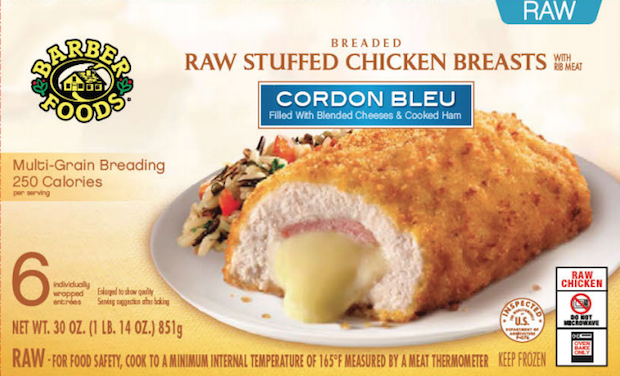-
Tips for becoming a good boxer - November 6, 2020
-
7 expert tips for making your hens night a memorable one - November 6, 2020
-
5 reasons to host your Christmas party on a cruise boat - November 6, 2020
-
What to do when you’re charged with a crime - November 6, 2020
-
Should you get one or multiple dogs? Here’s all you need to know - November 3, 2020
-
A Guide: How to Build Your Very Own Magic Mirror - February 14, 2019
-
Our Top Inspirational Baseball Stars - November 24, 2018
-
Five Tech Tools That Will Help You Turn Your Blog into a Business - November 24, 2018
-
How to Indulge on Vacation without Expanding Your Waist - November 9, 2018
-
5 Strategies for Businesses to Appeal to Today’s Increasingly Mobile-Crazed Customers - November 9, 2018
Barber Foods recalling 1.7 million pounds of chicken products
Barber Foods, a Portland, Maine, company, is expanding a recall of frozen chicken products because of salmonella concerns.
Advertisement
Monday’s recall is an expansion of an initial recall of about 58,000 pounds on July 2 that was prompted by a cluster of six illnesses in Minnesota and Wisconsin, according to the USDA. Here’s a full list of the products included in the recall. But now Barber Foods chose to expand even more the recall because more cases of Salmonella infections were detected among its customers. The products were manufactured between February 17 and May 20, 2015, and were sold at supermarkets across the USA and Canada.
The types of frozen chicken products include cordon bleu, chicken fingers, asparagus and cheese, creme brie, broccoli and cheese, parmesan, garlic butter, ham and cheese, and Kiev. Eating food contaminated with the bacteria can cause diarrhea, stomach cramps and fever, with symptoms usually beginning within 12 to 72 hours after exposure.
Salmonella is one of the most common foodborne diseases. The U.S. Centers for Disease Control and Prevention said that those risk groups are children, pregnant women, the elderly, and other people with a weak immune system.
Advertisement
Some of the products were removed from shelves as early as June 26, according to the Bangor Daily News, however some may still be on shelves, as well as in people’s freezers.





























